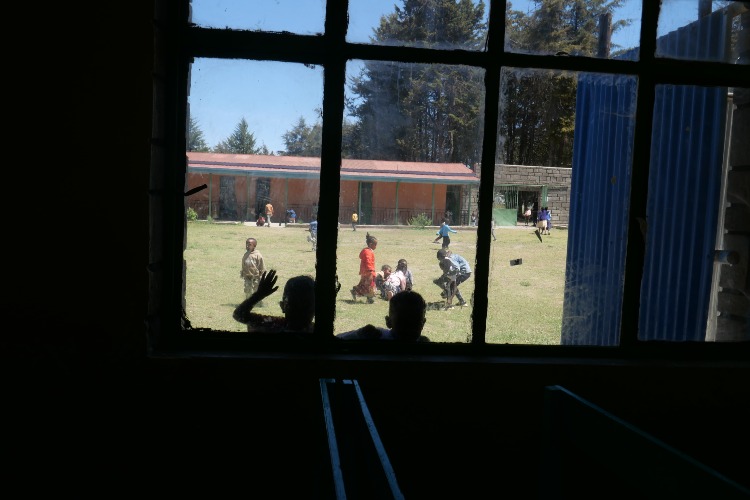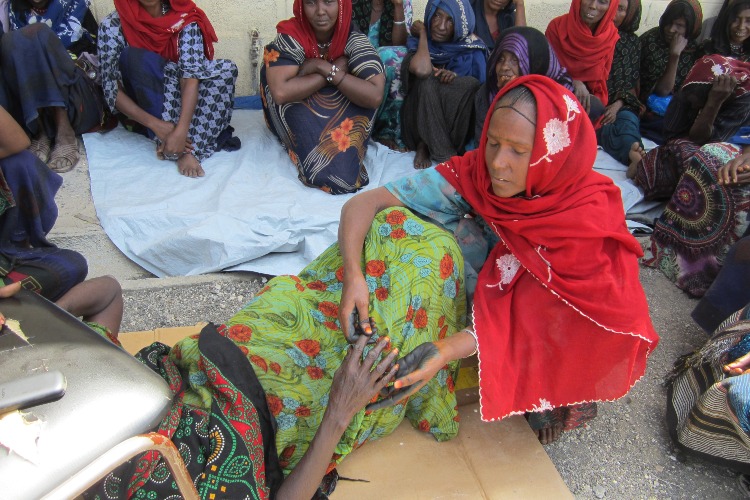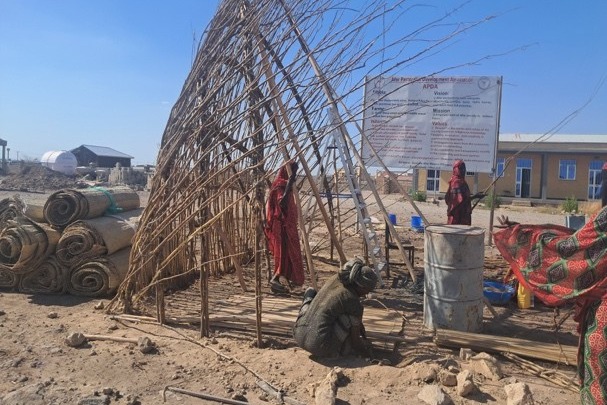Video Recording: An Evening with Valerie Browning AM
7 December 2022

Watch the recap! See highlights from our dinner discussion with long-time project partner from Afar, Valerie Browning AM.
Visiting Australia for the first time in several years, Valerie Browning joins Ethiopiaid Australia and the Barbara May Foundation in a dinner discussion.
In this Q&A highlights video, Valerie shares a first-hand account of the recent conflict and crisis in northern Ethiopia, the work of project partners (Afar Pastoralist Development Association - APDA) in this region and the incredible difference you are making for women and children in one of the most remote and isolated parts of Ethiopia.
To turn on subtitles, press Play and then click the above button inside the video.
Video transcript
Q: What is poverty?
Valerie Browning:
What is poverty? It's not; don't tell me it's lack of medicine, lack of this, lack of this, lack of - it's nothing to do with that. It's lack of... the ability to be part of your own process.
It is disempowerment. You're away from the ability to make a change yourself.
You don't want to die of cerebral malaria. You don't want to get married and have your wife die in childbirth. That's not fun. And you don't want to have to sit there and sit there and sit there until the child dies of hunger... waiting for the child to die because there's no food in the house. And you don't want ever to - you might have put your child in school and now the school books are way beyond your ability to buy them. So you've taken all the children out of school again. You don't want that.
Q: Valerie, how are you and your team (the Afar Pastoralist Development Association) addressing poverty in Afar?
Valerie Browning:
When our strange organisation, Afar Pastoralist Development Association started 28 years ago, 29 years ago, we started with 34 people. Don't be frightened... we are now 800 and 63, I think. Because we've just taken on another 60 women.
We are working deep into the community; we are with the community; we're growing with the community. And our whole policy is that the community get trained to do the work.
But that's not the world's policy of humanitarian work or development. The world's policy is, "You need jerry cans, you need..." (What else shall we say?)... "You need bars of soap. Here, take it. Sign here. I'll put it in my computer. It's over. And you've had it. Your problem [poverty] is solved."
Q: After so much conflict and devastation in northern Ethiopia, how do you heal and recover?
Valerie Browning:
Recovery, physical recovery, we need to build back. We have no education now. We've got to put the education back. We've got to put the... the only health for the north is our team of people walking with their camels, on their feet, looking for the pregnant mothers, working with the pregnant mothers, sending them [to hospital]. Our vehicles [are] running like crazy because they [the TPLF] burnt all the ambulances. So all that needs repairing.
But it's the minds of people - I think that's what you're trying to say -we need to repair. So we have begun. Our organisation was working on six sectors: Health, Education, Women's Empowerment, Community Economic Development, Livelihood, Land Rehabilitation from climate change as well as water. But we will take another one: we will put in Peace and Reconciliation. Our Women Extension Workers already started; they're working with the traumatised women.
Q: Do you think the peace agreement in northern Ethiopia will hold?
Valerie Browning:
Where we go, I'm not sure. But 'the leopard never changes his spots' is what I'm scared of. Because just before the peace - [before] they went down to the peace agreement - the TPLF leadership was still spewing out very nasty talking. I don't know.
Afar definitely are in the culture of reconciling and they don't want Ethiopia to break. That's what could happen. More than just the north of Tigray - I mean north of Ethiopia - we have fighting which is bringing up all the old wounds of Ethiopia. Ethiopia is not a nation; it's a country. She's divided like my fingers. So how Ethiopia can be born a nation is now the question.
It's a huge question you're asking. It's a question for the world. It's a question for Russia and Ukraine. It's a question you know they didn't answer in Syria. It's a question hardly answered in Afghanistan. You could go on.
.
Would you like to hear more from Valerie?
Follow Valerie's extraordinary journey as she fights for the human rights of people in one of the most remote and isolated regions of Ethiopia in her gripping biography...
"Maalika: My Life among the Afar Nomads in Africa"
When you buy your copy of "Maalika" from us, proceeds from your purchase go back into local healthcare and education in Ethiopia and continue Valerie's mission to help those most in need.
The link above takes you to our secure Shopify site where you can make your purchase. This is a limited-edition copy, printed exclusively for Ethiopiaid Australia.
Thank you for being part of positive change for people most in need in our world.
“Equal parts inspiring, shocking and heart-wrenching. The raw honesty in this biography matches Valerie’s frank and determined spirit. I finished the last chapter feeling older and wiser – but also more hopeful for the future of humanity, seeing what we can achieve if only we work together. I am infinitely humbled and proud to support Valerie’s work and call her my friend."
- Sharon Elliott, CEO Ethiopiaid Australia




